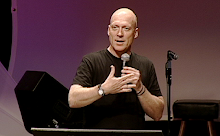- How could I be a Christian? The things I have done in my life are awful. Jesus might be OK for naïve nice people and little old ladies, but the walls would cave in if I ever stepped foot in a church! I sit in the back if I ever go to a wedding or a funeral.
The very core of relationship with Jesus is he makes it possible through forgiveness of sin. The very last thing that should get in the way of developing that connection with him would be thinking you were unforgivable.
One of the great things about the Bible is tells the story of God’s people in an honest way. The models of faith lifted up are not without their “sorted” past. Far from it.
Take David, for instance. Throughout his life he struggles with egregious sin but his relationship with God remains. What do you have in your past that makes your being forgiven and restored by Jesus impossible? A couple of examples.
David
Adultery
Accessory to murder
You
?
If you are avoiding coming to Jesus because of your sin, then you are not being honest about being open to him, or you are unfamiliar with how it works with him. Forgiveness of sin and new life are the essence of what it means to be a Chirstian.

